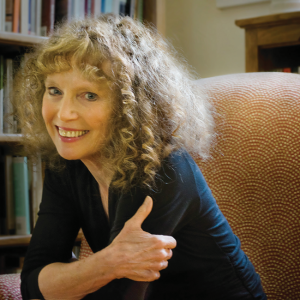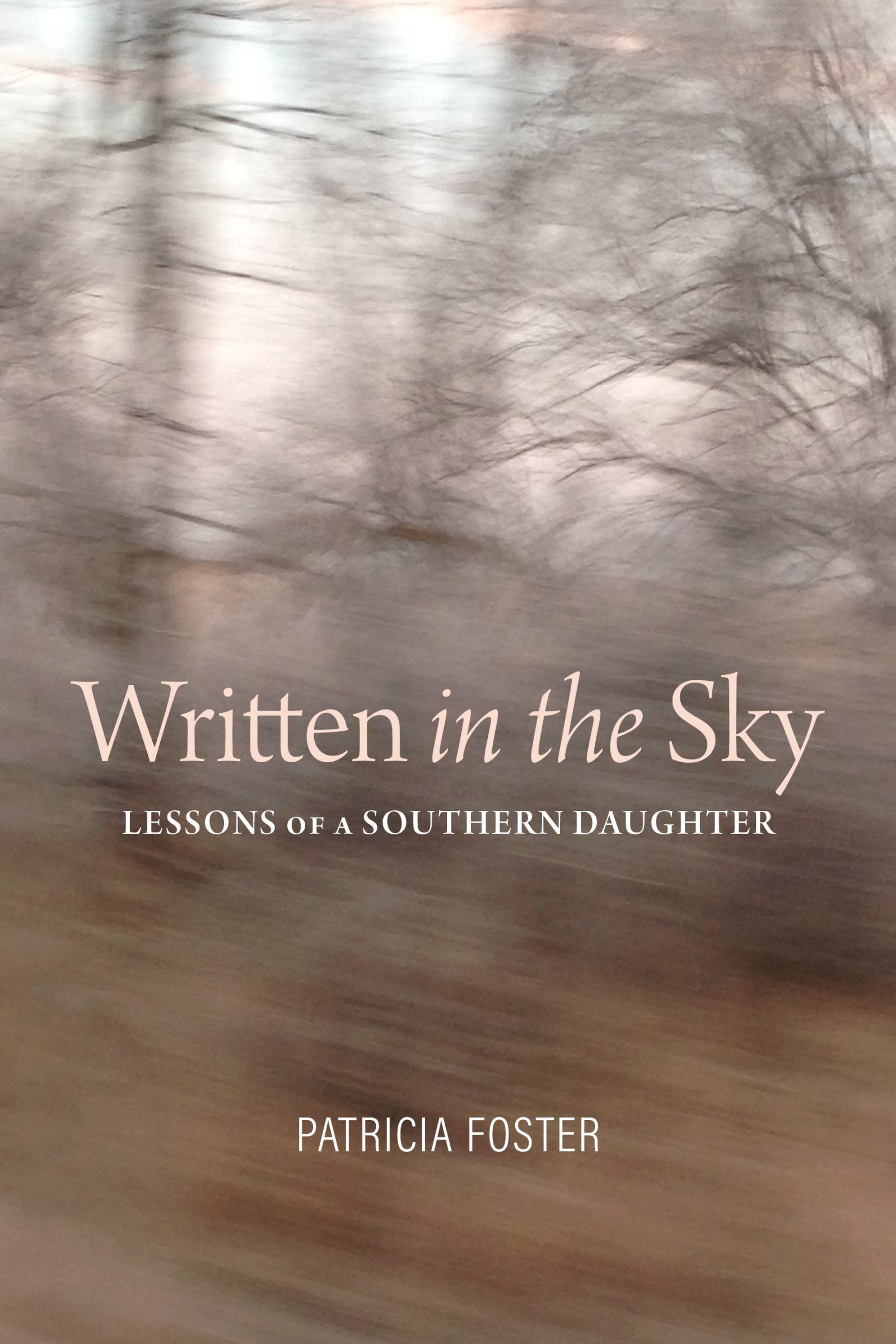(Part 1, for me, happened earlier, as I wrote about in my novel John and Mary Margaret.)
Written in the Sky: Lessons of a Southern Daughter
By Patricia Foster
A book review by Susan Cushman
My friend Wendy Reed asked me to review this book by her fellow Alabama author, Patricia Foster, whom I’ve never met but hope to one day. This book was right up my alley, which I’m sure Wendy knew, when she asked me review it. The book came out on September 26, 2023, but I’m just now reading this “powerful, often heart-wrenching collection of essays tackling the history of the American South,” as I read in the letter from her publisher, the University of Alabama Press. Here’s a bit more from the press, before I begin my review:
 Born in Alabama, Foster was part of a generation of postwar white southerners . . . a 20-something caseworker in western Tennessee assigned to work with poor white sharecroppers and junk haulers, she encountered the ‘sour meanness and desperation, racial injustice, ill health, and lack of resources that so often accompanied poverty.’. . . A professor emerita at the University of Iowa’s MFA Program in Nonfiction and author of multiple novels and nonfiction books, Foster fully displays her literary talents here as the work demonstrates a profound sensitivity to history, nuance, and self-reflection.
Born in Alabama, Foster was part of a generation of postwar white southerners . . . a 20-something caseworker in western Tennessee assigned to work with poor white sharecroppers and junk haulers, she encountered the ‘sour meanness and desperation, racial injustice, ill health, and lack of resources that so often accompanied poverty.’. . . A professor emerita at the University of Iowa’s MFA Program in Nonfiction and author of multiple novels and nonfiction books, Foster fully displays her literary talents here as the work demonstrates a profound sensitivity to history, nuance, and self-reflection.
Foster’s journey is a hard act to follow! But from early in Foster’s book, I embraced her journey, as a fellow writer:
Directly or symbolically, we writers explore what is done to us, what is done to our families, to our most intimate cultures and thus inevitably, we become the interpreters of our particular tribe. . . . Of course we want more clarity, more recognition and reconciliation for the troubled ways that we’ve survived.
Yes. That’s how I felt as I was writing my novel, John and Mary Margaret, about a Black boy from Memphis and a White girl from Jackson, Mississippi (who was very much like me) who fell in love on the Ole Miss campus in the 1960s, which was, of course, not well received. I wrote because I wanted more clarity. My book is set against the backdrop of 50 years of civil rights history in Mississippi and Memphis, the years, as Foster says, which contained “the troubled ways that we’ve survived.”
Foster writes about changing her “indifference to the world,” and about “waking up.” And how that waking is “always a battle with the self.”
Yes! That’s exactly what I experienced during the racial protests in 2020 and beyond . . . as I emerged from my privileged white bubble and awoke to the complicity of my past, growing up in Mississippi in the 1950s and 60s. Foster’s quote from Wendell Berry resonates with me:
Once you begin to awaken to the realities of what you know, you are subject to staggering recognitions of your complicity in history and in the events of your own life.
I think my favorite section of her book is “Fingering the Scars,” in which she expresses things about herself that also ring true with my own life:
But in many ways, the person I’ve come to observe is myself, the obedient, frustrated girl who grew up in a segregated southern town, transformed into a less-than-obedient, frustrated woman who’s trying to learn to talk honestly about race and the shifting boundaries of cultural identity. Self-recognition, it turns out, is a first principle.
I couldn’t help but think, as I read this book, about another book by my friend and fellow Mississippi native Ellen Ann Fentress, who wrote about many of these issues in her memoir, The Steps We Take: A Memoir of Southern Reckoning. You can read my blog post about her book last September here.
Unlike my research in Mississippi and Memphis, Foster went to Tuskegee University in Alabama to research the lynching files and to interview students and faculty for her book. I was impressed with so much from this part of her journey, and from her conclusion that we all have a debt to pay for what happened. As she says:
The debt is not personal. The debt is civic. It is a recognition that inequality, especially savage inequality, is not overcome in two or three or even four generations and can be ameliorated only by a continual fight. It does not make white people who answer to this debt heroic; it is far less than that. Instead, it is a duty. A form of reparations. There is no other way to move forward.
This reminded me of my friend Ellen Morris Prewitt, another Mississippi native, who has written an amazing book (yet to be published) about those reparations and why they need to happen.
Foster says, “Writing is drawing the essence of what we know out of shadow.” That’s exactly what she did with her book, and what I tried to do with John and Mary Margaret, and what Ellen Ann Fentress does with her memoir, The Steps We Take, and what Ellen Morris Prewitt is trying to do with her latest novel. We are all addressing what Foster calls “the pathological myth of racial inferiority. . . . the intolerable truth . . . the grotesque psychology of racism. . . . .”
The grotesque psychology of racism. Wow.
I recently watched the movie, “Origin,” about Isabelle Wilkerson’s novel, Caste, a favorite book of mine, which I read as I finished writing John and Mary Margaret. I wrote about the influence the book had on me in this post, “Awakening,” in August of 2021. The movie emphasized caste, not over and against race, but as a new way of looking at the abuse that happened/happens as humans use power to subjugate those people they believe to be inferior.
Written in the Sky is a collection of deeply personal essays, as she wrestles with her southern past, family histories, cultural traditions, and what she calls the “shadow stories beneath our mythologies.” I love essays, and Foster has published well over one hundred essays and stories in such journals as Antioch Review, Arts & Letters, Glimmer Train, Ploughshares, The Sun, and Virginia Quarterly Review, among others, and more than fifteen of her essays have been recognized in Best American Essays. This is such an excellent read . . . and now I’m interested in reading her other books, especially All the Lost Girls and Minding the Body. I’m so grateful to Wendy Reed for introducing me to Patricia.
